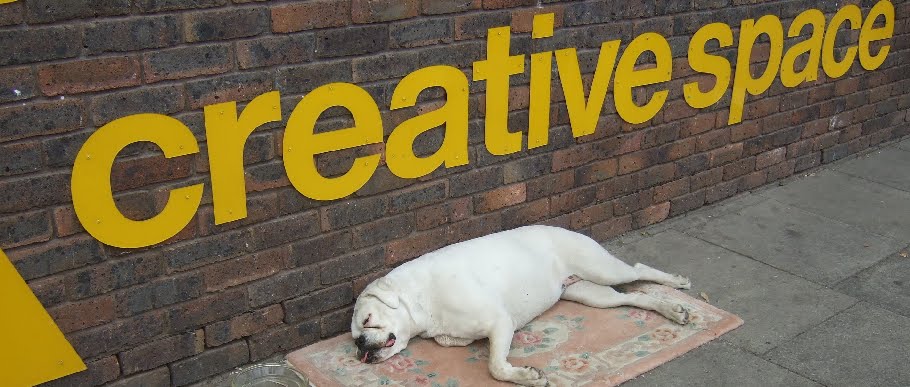Friday, 15 June 2012
Betfred appeal dismissed: what next for former Halifax?
The Planning Inspectorate's decision to dismiss Betfred's appeal against the council makes interesting reading. You can follow the back story by searching for 'Betfred' on the archives of the blog (search box in the right-hand column) but as might be expected, the inspector has taken all of this into account and sets it all out in his decision document, which you can download from this page.
His main conclusion is:
Overall, I conclude that the balance of likelihood is that the use enabled by the removal of the condition in dispute would give rise to anti-social behaviour and disturbance to local residents and other users of Deptford District Centre; that the fear of crime would be enhanced by an additional betting office in close proximity to 5 others; and that there is a risk of an increase in actual crime.
Such outcomes would broadly conflict with the intentions of criterion (d) of UDP policy STC4. There would also be material conflict with the social component of sustainable development, as set out in the NPPF. However, I have not identified conflict with any part of Policy 6 in the Lewisham local development framework Core Strategy (June 2011), also cited on the Council’s decision notice.
It's perhaps worth noting the inspector's point that the evidence of the harm caused by betting shop clusters has actually increased since Betfred's first application was made, and that he has taken into account the gathering weight of opinion suggesting that multiple betting shops do not benefit high street sustainability.
Joan Ruddock's private members bill to create a separate planning class for betting shops was cited as adding weight to these concerns, as was the Mayor of London's press release calling for something similar.
The inspector says: These matters may be political in origin and the Bill may not pass into law. Notwithstanding this, they suggest to me that local concern over the number of betting offices on Deptford High Street has been of sufficient weight to attract wider attention at the constituency and London levels.
I was also heartened to read that the inspector disregarded Betfred's argument that it would be occupying a unit that would otherwise be left empty.
Another important change has been the publication of the National Planning Policy Framework in March this year. This has cancelled and taken the place of the national planning policy referred to by the parties. In favour of the proposal, the NPPF gives support to sustainable economic growth, and urges local planning authorities to “look for solutions rather than problems”. Bringing the vacant appeal premises into economic use could contribute in a small way to these ends. However the case has not been made that a betting office use is necessary in order to bring the premises into use: despite the small scale and local nature of many businesses along the High Street and the moderate quality of their premises, I observed only a few vacancies.
The NPPF says that planning policies and decisions “should aim to achieve places which promote [among other things] safe and accessible environments where crime and disorder, and the fear of crime, do not undermine quality of life or community cohesion”.
While the proposal might secure a small economic benefit, I consider that this would be outweighed by the significant social harm with respect to anti-social behaviour, crime or disturbance, as identified by myself and the previous Inspector.
The inspector says he has no reason to believe that Betfred is not a responsible operator of betting offices, as it states in the application. However he questions whether this can be translated into practical actions:
Any permission goes with the land and occupancy and management styles could change in the future. Also, the appellant’s Statement refers to “a number of conditions” imposed on the Gambling Act licence of February 2011, and the company’s NPPF Statement maintains that conditions can be appropriately attached to the grant of planning permission “just as they have been to the licence already approved by the same local authority”. However, although this is now the second planning appeal since that licence was given, I have not seen any wording for specific conditions that has been made available for formal consideration and consultation.
With Betfred now at the end of the second appeal process for this property, and no closer to getting the result it wants, I wonder where they will go next? The only avenue for further appeal is to take the matter to the High Court, which would be risky for Betfred not just from a financial point of view.
The grounds on which the inspector has made the decision - the potential for increased anti-social behaviour and crime - risks turning any challenge to the judgement from a small-scale local issue into a potential test case for the industry at large. If Betfred was to lose an appeal in the high court, it would have implications for similar cases around the country.
While this is a fantastic outcome for Deptford High Street, and a significant decision which councils and opponents to similar cases can use in their defence, let's not forget that if this property had been classified as A2 use in the current sense (laughingly 'financial and professional services') no planning permission would have been necessary.
Subscribe to:
Post Comments (Atom)


4 comments:
A very thought-provoking piece indeed. Keep up the good work DD!
Im so glad it didn't go through. Let's have the nice cafe that we were meant to have instead of bloody Poundland.
It will be a Pawnbrokers that will sell stolen goods, no doubt. What a vast improvement on a Bookies! Atleast Betfred were a known company with - one might assume - processes in place to curb anti social behaviour. You have to remember that its Deptford... not Bond Street.
It's gone to cash generators...
Post a Comment